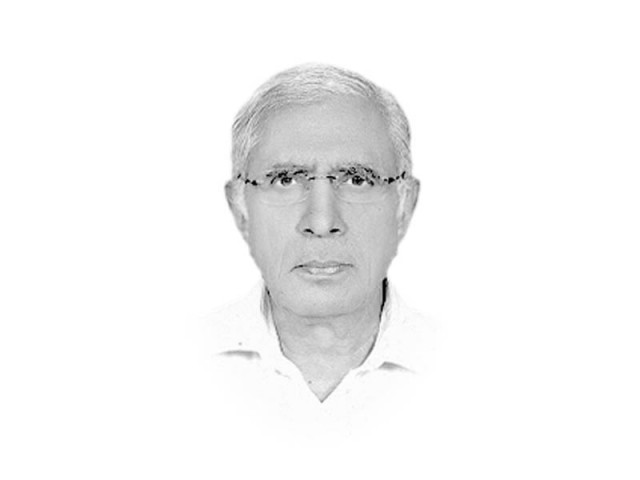Extremist narrative
In order to save Pakistan from imminent chaos, we need to develop an equally forceful counter-narrative.

The writer is Executive Editor of The Express Tribune
Some of the theories trace this narrative to the very genesis of Pakistan that morphed immediately following the partition of the subcontinent into a perpetual jihad between Muslim Pakistan and Hindu India over Kashmir.
Some trace its origins to Pakistan subsequently becoming a security state. Some date it to General Ziaul Haq’s Islamisation efforts.
Others have blamed it on the reinvention of the concept of jihad by the US as it successfully tried to bleed into oblivion, the now defunct Soviet Union and its communist philosophy.
There are also those who ‘credit’ the late Osama bin Laden and his al Qaeda for introducing the narrative to Muslims the world over as they attempted to liberate the ummah from the shackles of what they considered to be the global hegemony of the faithless.
Some even attribute its origin and its degeneration into a bloody mayhem to the age-old sectarian rivalry within the Muslim ummah and an obscurantist interpretation of Islam itself.
Suicide is un-Islamic, but this obscure extremist narrative has made it Islamic on the non-Islamic basis that since the suicide bombers die in the cause of Islam, they go straight to jannat. They justify the killing of innocent people in suicide bombings on the self-serving fatwa that good Muslims among the victims would go straight to jannat and the not-so-good Muslims, naturally, straight to hell.
There are many among the Muslim communities the world over, who believe that the narrative has found empathy with the downtrodden, hungry and illiterate masses in the Muslim world, who have been subjected to decades’ long oppression by their corrupt and decadent ruling elite, lacking even a modicum of moral authority to rule.
In order to roll back the gains made by the extremist narrative so far, and save Pakistan from imminent chaos, we need to develop an equally forceful counter-narrative. And this counter-narrative needs to be articulated from a political platform by politicians of known integrity and credibility.
One thought Imran Khan was in an ideal position to give a lead to such a narrative. But he seems to have gone in a different direction. Not that the direction is wrong because he, like many among us, does not seem to want to see the ongoing confrontation with the extremists turning into a nationwide civil war.
Imran, perhaps, believes that he can talk the extremists out of their ways and get them to lay down their arms. There is no harm in giving his talks proposal a try. But perhaps, he would like to consider other equally peaceful but more effective ways to achieve his objective.
One such method is to isolate the extremists by appealing directly to their supporters and potential supporters with a counter-narrative, offering them a life free from hunger, disease and ignorance; a life free from insecurity; and a corruption-free society where everyone is equal before law. It is, no doubt, a tall order. But being a proven achiever, Imran’s call would surely carry the needed weight. And since his party rules the most affected province, he could test this strategy in Khyber-Pakhtunkhwa, while waiting for the extremists to make up their mind about whether or not to agree to talks.
He could start by offering free schooling up to the primary level and free primary health care; make the rich in his province pay for utilities (water, gas, electricity) consumed by the not-so-rich and also get the former to share the latter’s transport burden.
A good part of this scheme would become economically feasible once the local governments, as envisaged in the manifesto of the PTI, are set up after the upcoming local bodies elections.
Since it was Bilawal Bhutto Zardari, who was the first politician (and still is) to give voice to the counter-narrative, one expects him to follow up with a concrete plan of action for Sindh.
Published in The Express Tribune, January 8th, 2014.
Like Opinion & Editorial on Facebook, follow @ETOpEd on Twitter to receive all updates on all our daily pieces.















COMMENTS
Comments are moderated and generally will be posted if they are on-topic and not abusive.
For more information, please see our Comments FAQ